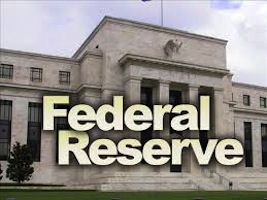Federal Reserve Vice-Chairman Stanley Fischer made a couple of controversial statements this week regarding negative interest rates. Fisher stated negative rates “seem to work” while…

Stanley Fischer

The Federal Reserve operates the largest printing press on the planet. It seeks to hire the most qualified people to address current economic conditions and…

“No flow, no go.” That may be the simplest way to describe the critical role of central banks to the flow of credit and money…
